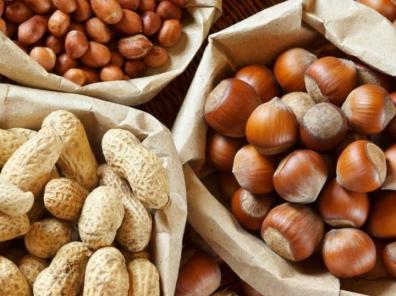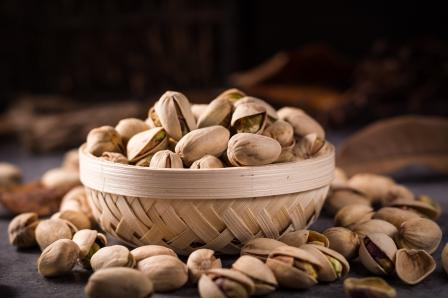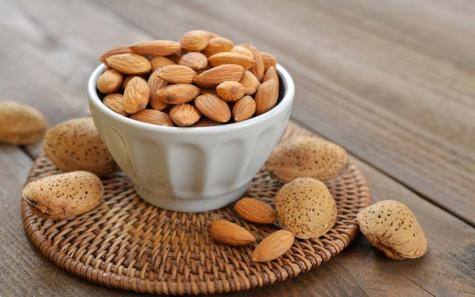Peanuts, known as “huā shēng” (花生) in Chinese, are much more than just a popular snack or ingredient in Chinese cuisine. These humble legumes have a rich history and are celebrated for their versatility and health benefits in traditional Chinese cooking. From savory stir-fries to delectable desserts, peanuts play a vital role in the culinary landscape of China. In this article, we will delve into the cultural significance, nutritional value, and culinary uses of peanuts in Chinese cuisine. History of Peanuts in Chinese Cuisine: Peanuts have been cultivated in China for centuries and are believed to have originated in South America before spreading to Asia. Historical records indicate that peanuts were introduced to China during the Ming Dynasty (1368-1644) and quickly became a staple in Chinese agriculture and cuisine. The cultivation of peanuts in China expanded during the Qing Dynasty (1644-1912) as the legume proved to be a drought-resistant and high-yielding crop. In Chinese culture, peanuts are associated with good luck and prosperity. The round shape of the peanuts symbolizes unity and longevity, making them a popular ingredient in celebratory dishes during festivals and important events. Peanuts are often included in traditional Chinese wedding banquets as a symbol of fertility and abundance. Nutritional Benefits of Peanuts: Peanuts are not only delicious but also packed with essential nutrients that are beneficial to health.
.
They are a good source of protein, healthy fats, vitamins, minerals, and antioxidants. Peanuts are rich in monounsaturated fats, which are known to have heart-healthy benefits by reducing bad cholesterol levels and lowering the risk of cardiovascular diseases. Furthermore, peanuts are an excellent source of plant-based protein, making them a great option for vegetarians and vegans to meet their protein needs. They also contain high levels of folate, niacin, and other B vitamins that are essential for energy production and overall well-being. In Chinese traditional medicine, peanuts are believed to have warming properties that can help improve circulation and digestion. Culinary Uses of Peanuts in Chinese Cuisine: Peanuts are a versatile ingredient in Chinese cooking and can be used in a wide variety of dishes, from appetizers to main courses and desserts. One of the most popular ways to enjoy peanuts in Chinese cuisine is in kung pao chicken, a flavorful Sichuan dish made with diced chicken, peanuts, and spicy chili peppers. The crunchy texture and nutty flavor of the peanuts complement the tender chicken and savory sauce, creating a harmonious balance of flavors. Peanuts are also commonly used in cold dishes such as shredded chicken with spicy peanut sauce, where the peanuts add a satisfying crunch and rich flavor to the dish. In northern Chinese cuisine, peanuts are often roasted and salted before being used as a topping for noodle dishes or mixed into savory sauces. In Chinese desserts, peanuts are a common ingredient in sweets such as peanut brittle, peanut sesame balls, and peanut mochi.
..
These indulgent treats showcase the versatility of peanuts in creating both savory and sweet dishes that cater to different palates and preferences. Health Benefits of Peanuts in Chinese Medicine: In traditional Chinese medicine (TCM), peanuts are valued for their medicinal properties and are believed to have various health benefits when consumed in moderation. Peanuts are considered to have a warming energy that can help strengthen the spleen and stomach, promote digestion, and alleviate symptoms of coldness and dampness in the body. Peanuts are often used in TCM remedies to relieve coughs, asthma, and other respiratory conditions. Peanut soup is a popular remedy in Chinese households during the winter months to warm the body and nourish the lungs. Peanuts are also believed to have anti-inflammatory properties that can help reduce pain and swelling in the joints. Despite their numerous health benefits, it is important to note that some individuals may have allergies or sensitivities to peanuts. It is advisable to consult a healthcare provider before incorporating peanuts into your diet, especially if you have a history of nut allergies or related conditions. Conclusion: In conclusion, peanuts are a beloved and versatile ingredient in Chinese cuisine that offers a wide range of culinary delights and health benefits. Whether enjoyed as a snack, incorporated into savory dishes, or used in traditional Chinese desserts, peanuts continue to play a significant role in the culinary traditions of China.
…
With their rich history, nutritional value, and cultural significance, peanuts in Chinese cuisine are a testament to the enduring legacy of this humble legume. So, the next time you savor a dish with peanuts, remember the centuries of culinary tradition and health benefits that this small but mighty legume brings to the table. Keyword integration: peanuts in Chinese, huā shēng, Chinese cuisine, traditional Chinese medicine, culinary uses, health benefits — Peanuts, known as “huā shēng” (花生) in Chinese, are a versatile and beloved ingredient in Chinese cuisine with a long history of culinary use and medicinal significance. From savory dishes to sweet treats, peanuts play a prominent role in the diverse tapestry of flavors that make up Chinese cooking. Let’s further explore the deep-rooted cultural connections, culinary applications, and health benefits of peanuts in Chinese cuisine. Cultural Significance of Peanuts in Chinese Tradition: In China, peanuts are more than just a tasty snack; they hold deep cultural symbolism and are integrated into various aspects of Chinese tradition and festivities. The round shape of peanuts symbolizes harmony and unity, making them a popular choice for inclusion in auspicious dishes served during celebrations such as Lunar New Year, weddings, and other special occasions. In Chinese folk belief, peanuts are also associated with fertility and prosperity, making them a staple in traditional wedding banquets.




Your comment submitted.